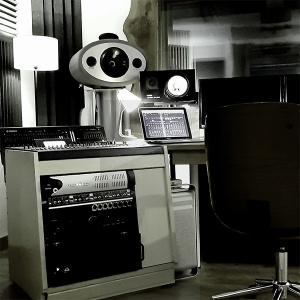MASTERING

Mastering
The purpose of mastering is to balance the sonic elements of a stereo mix and optimise playback across all systems. Ultimately, the mastering process creates the final presentation for your audio.
What’s the difference between mixing and mastering?
Mixing happens at the start of post-production, when a mixing engineer sculpts and balances the separate tracks in a session to sound cohesive when played together. Mix engineers reduce imbalances between instruments by adjusting balance and colour, tighten rhythmic patterns and emphasise important song elements with tools like EQ, compression, panning and reverb.
A mastering engineer then listens to the whole piece as a stereo mixdown. They’re thinking about the finished product and if there’s something they might need to do to improve the sound. This involves correcting and enhancing aspects of the mix including level and tone with tools like iZotope’s Ozone to ensure optimal playback quality across all systems and formats before distribution. In cases where a project contains more than a single track, mastering engineers not only work to improve each individual track, but also work to establish a consistent listening experience across an entire album.
